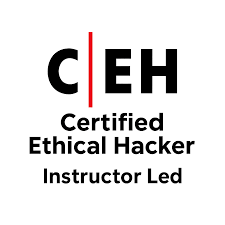Palo Alto Training – Learn Palo Alto Firewalls in 2025

The CHFI (Computer Hacking Forensic Investigator) certification by EC-Council equips professionals with the skills needed to recover and analyze critical data during digital investigations. Data recovery is a core component of digital forensics, especially in cases involving cybercrime, data breaches, or accidental deletions. Here are some advanced data recovery techniques covered in CHFI: 1. Recovering […]

The CHFI (Computer Hacking Forensic Investigator) certification by EC-Council equips professionals with the skills needed to recover and analyze critical data during digital investigations. Data recovery is a core component of digital forensics, especially in cases involving cybercrime, data breaches, or accidental deletions. Here are some advanced data recovery techniques covered in CHFI: 
Deleted files are not always permanently removed from storage devices. Forensic tools and techniques allow investigators to:
Disk imaging creates an exact copy of the original storage device for analysis. This ensures:
Hardware issues like physical damage can render data inaccessible. Techniques include:
RAID (Redundant Array of Independent Disks) configurations add complexity to data recovery. CHFI covers:
Mobile devices store vast amounts of data, often critical to investigations. Recovery methods include:
RAM analysis can reveal active or recently accessed data, including:
Encryption poses challenges to data recovery, but CHFI techniques provide ways to:
With the proliferation of cloud storage, recovering data from cloud environments has become critical. Techniques include:
At SecureValley, we specialize in delivering top-notch training for CHFI certification by EC-Council. Here’s why you should choose us:
Advanced data recovery techniques are indispensable in the digital forensics field. The CHFI certification by EC-Council not only trains professionals to use these methods effectively but also prepares them to handle real-world scenarios involving complex data recovery challenges. By mastering these techniques with SecureValley, forensic investigators ensure that critical evidence is preserved, analyzed, and presented accurately.
Get certified with industry-leading cybersecurity certifications from EC-Council, PECB, Palo Alto Networks, and more.

Learn from world-class instructors Collaborate with top professionals Advanced training...

The CEH is the world's leading cybersecurity certification, recognized by...

Onsite training course Led by an instructor Interactive sessions

Asynchronous, self-study environment Video-streaming format Flexible learning schedule
Adding {{itemName}} to cart
Added {{itemName}} to cart

